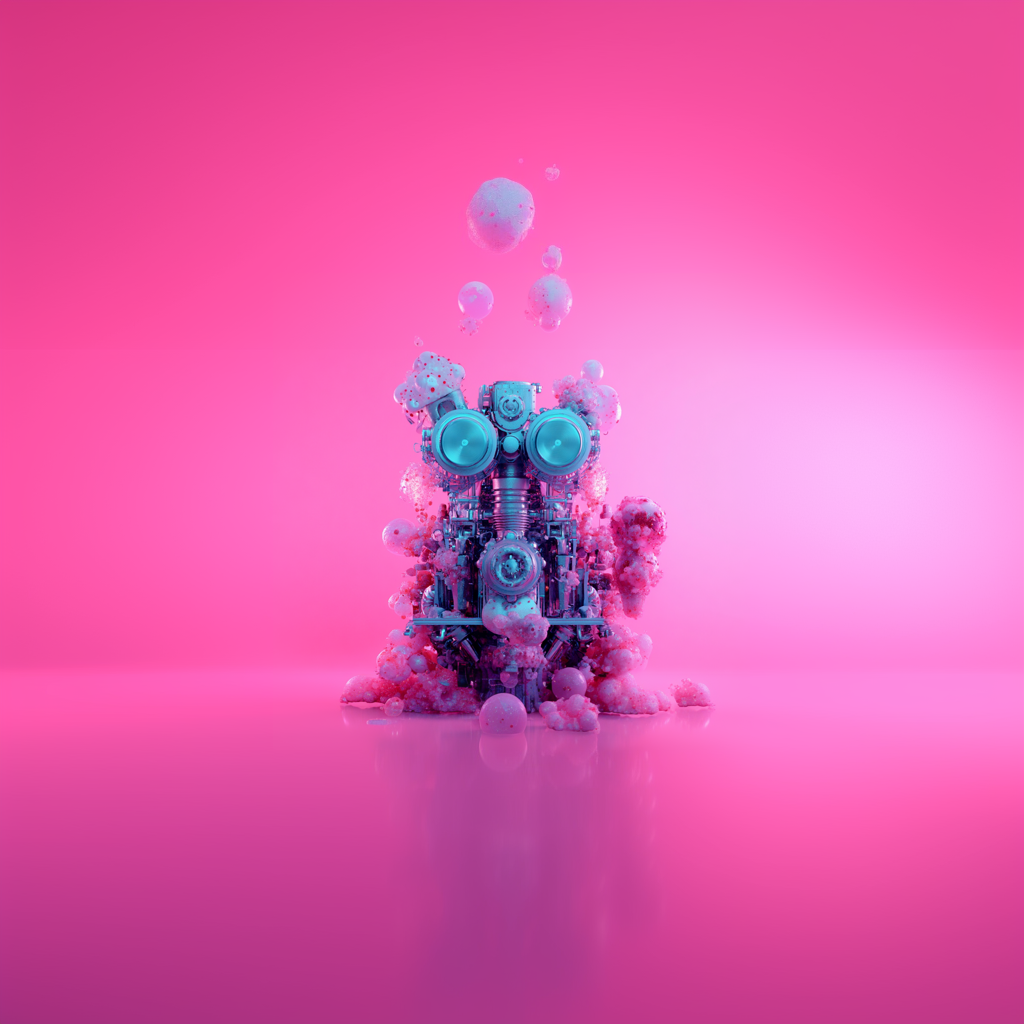OPENINGS

01 ENZYMATIC MATHINE: CONTAMINATION
In collaboration with Xocolat &Future Fermentation
Special guest: Matteo Fieni
Participant artists: Kevin Merz, Artur Schmidt, Felix A. Bachmann
With the participation of Stefano Gardel
Artificial Intelligence (AI) is currently a catalyst for social, technical, and creative transformations, characterized by an inherent ambiguity that reflects both its potential and its challenges. Alongside this modern technology, we can consider fermentation, an ancient biological process that has influenced human development for millennia, including the evolution of the human brain. This invites us to reflect on the fact that progress can be both rapid and gradual, blending technological innovation with slow yet profound transformative processes.
While AI and other generative technologies have revolutionized digital content creation and complex processes, our institutional, social, and educational structures remain unprepared to address these rapid changes. This raises sustainability questions that we aim to explore through the concept of "enzymatic transformation" as a metaphor for creative contamination. The idea is to view contamination not only as the interaction between AI and biology but also as the fusion of different rhythms and developmental processes, in an era that glimpses the engineering of biology (or the biologization of technology). Restricting the use of AI could hinder the potential for a deeper understanding of how to integrate diverse technologies holistically. Rather than resisting, we should seek a dynamic balance between technological innovation, sustainability, and ethics, adopting a perspective that encompasses both the rapid pace of technological advancement and the slower, reflective rhythm of biological fermentation.
References
In 1975, Gordon Moore, co-founder of Intel, formulated "Moore's Law," an observation that the number of transistors in a microprocessor doubles approximately every two years, reflecting the dizzying speed of technological change. Although the validity of this law is debated today, AI drives new evolutionary leaps and emerging technologies. The hypothesis that fermentation played a role in the expansion of the human brain suggests that the regular consumption of fermented foods by our ancestors made nutrients more easily digestible and absorbable, supporting the growing energy demands of the developing brain. The gut is our second brain. This natural process, involving the decomposition of organic substances through microorganisms, could have provided a significant source of metabolizablizing energy, contributing to the increase in brain size and cognitive capacities during human evolution (Bryant, Hansen, Hecht, 2023, Nature / Future Fermentation). Artists, accustomed to creatively utilizing new tools, may understand how to bring new stories and knowledge to life, perhaps more quickly than other segments of society. Embracing this moment with all its contradictions, while avoiding absolute moral judgment, reveals that humanity is shifting dimensions, opening new opportunities for societal good that are both just and necessary.
References
In 1975, Gordon Moore, co-founder of Intel, formulated "Moore's Law," an observation that the number of transistors in a microprocessor doubles approximately every two years, reflecting the dizzying speed of technological change. Although the validity of this law is debated today, AI drives new evolutionary leaps and emerging technologies. The hypothesis that fermentation played a role in the expansion of the human brain suggests that the regular consumption of fermented foods by our ancestors made nutrients more easily digestible and absorbable, supporting the growing energy demands of the developing brain. The gut is our second brain. This natural process, involving the decomposition of organic substances through microorganisms, could have provided a significant source of metabolizablizing energy, contributing to the increase in brain size and cognitive capacities during human evolution (Bryant, Hansen, Hecht, 2023, Nature / Future Fermentation). Artists, accustomed to creatively utilizing new tools, may understand how to bring new stories and knowledge to life, perhaps more quickly than other segments of society. Embracing this moment with all its contradictions, while avoiding absolute moral judgment, reveals that humanity is shifting dimensions, opening new opportunities for societal good that are both just and necessary.
The following short video was generated and edited during the AI 01 meeting.
